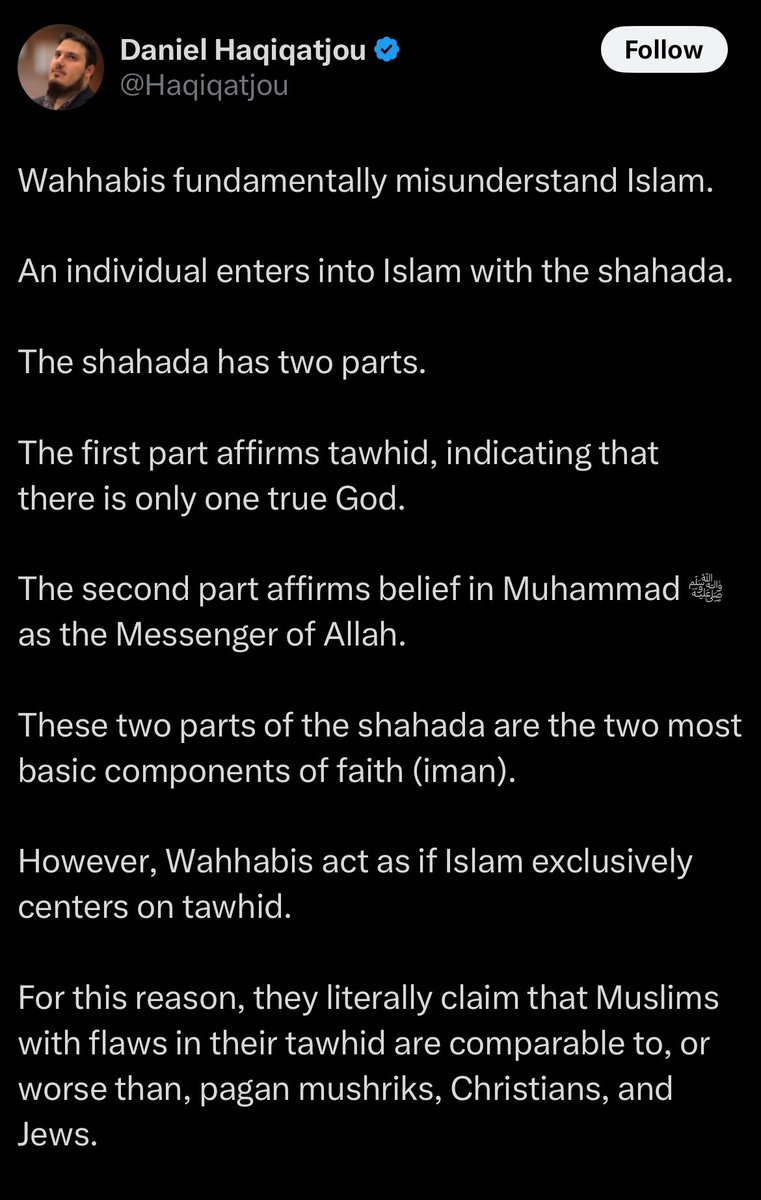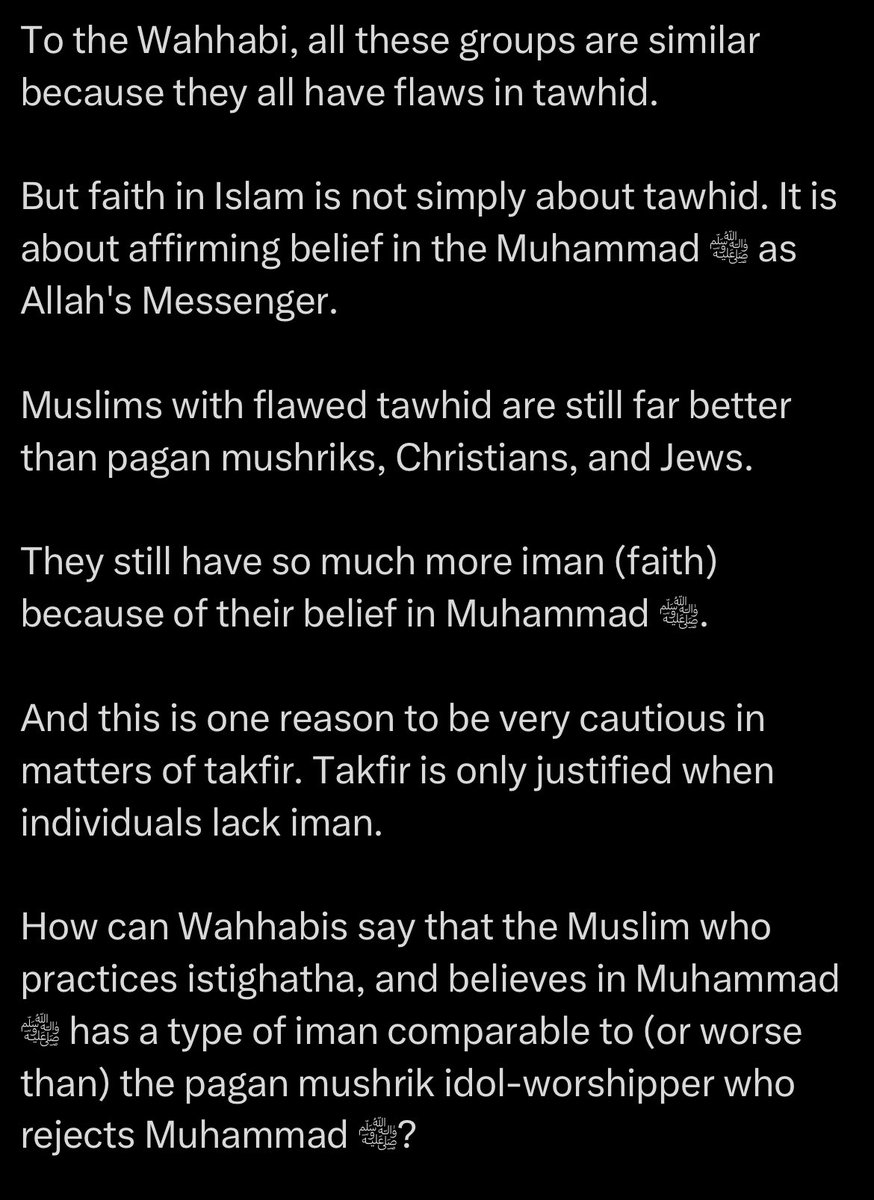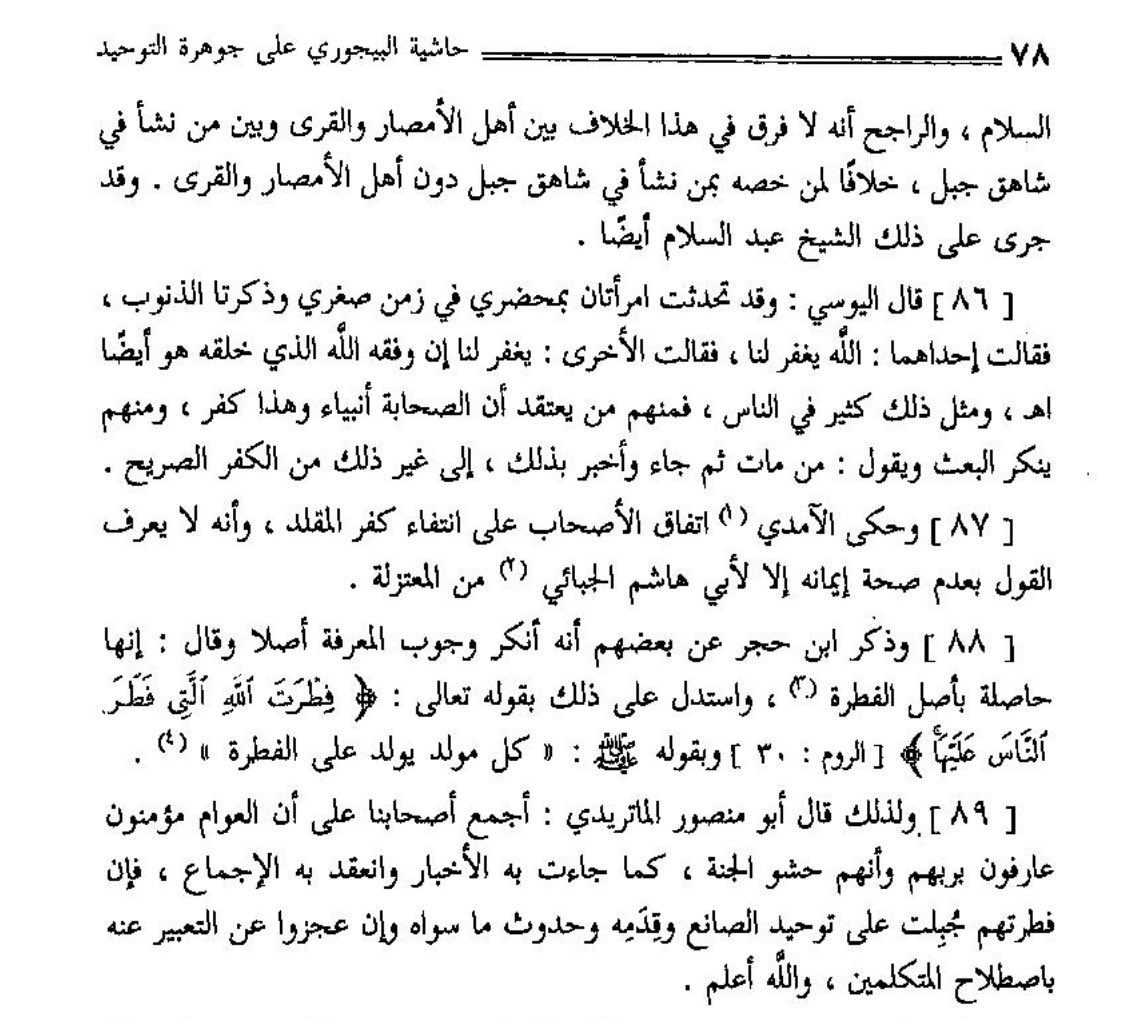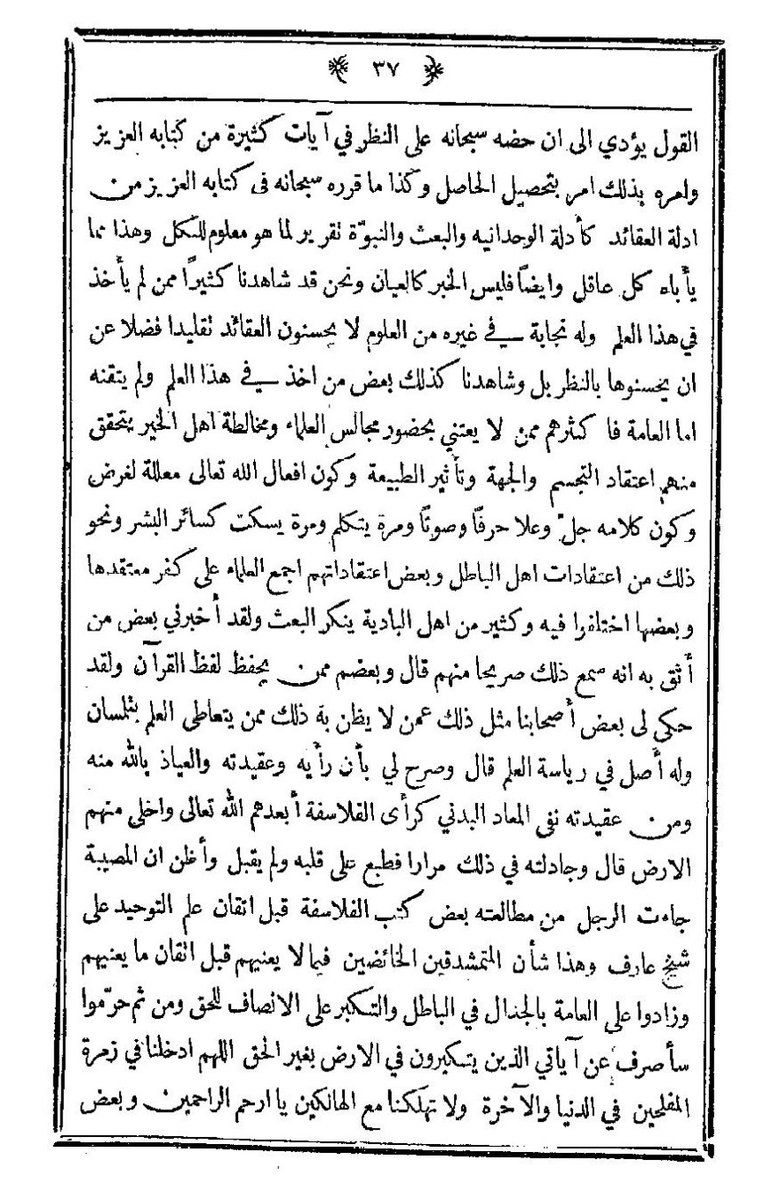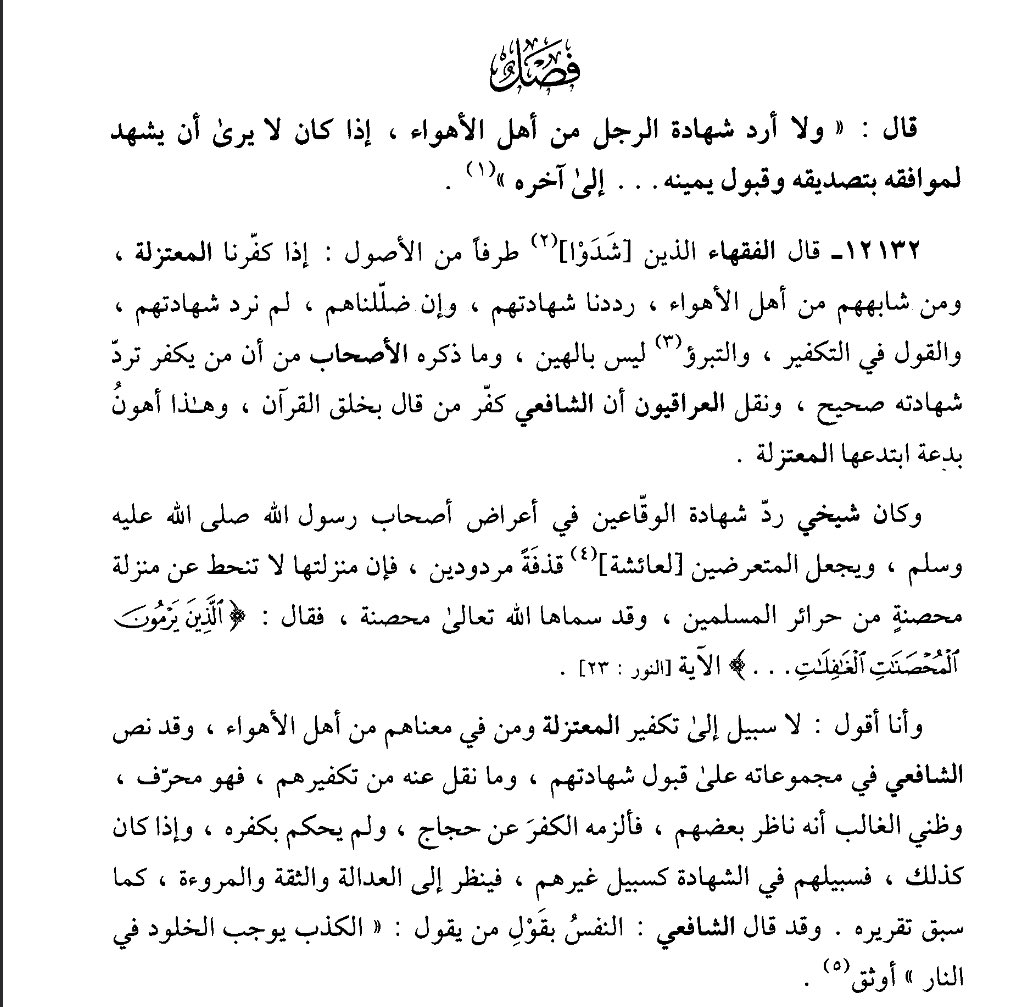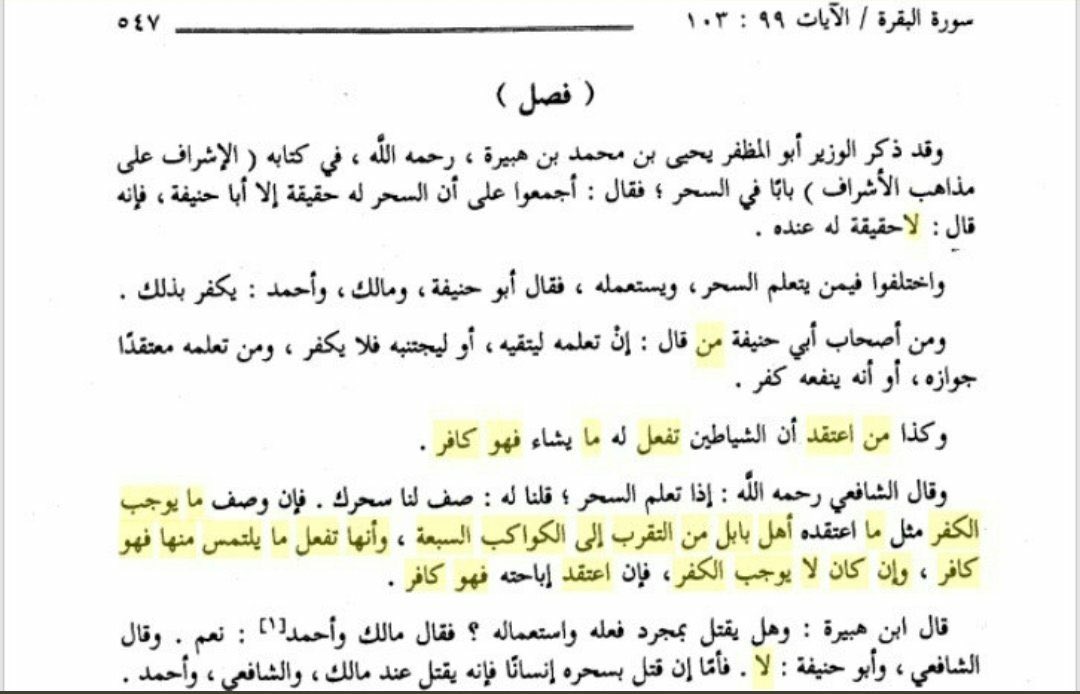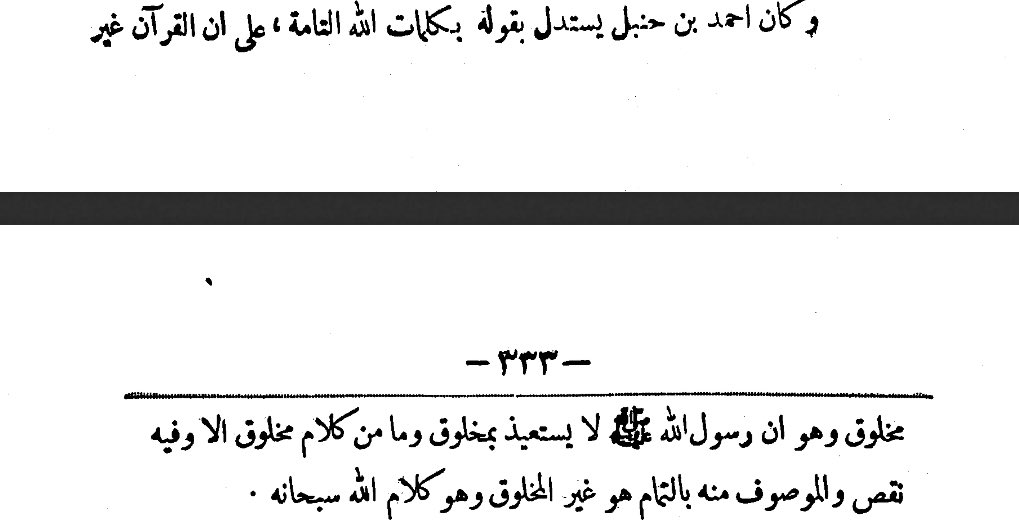Are the Mutashabihat [unclear] verses in the Quran unknown to us in meaning?
In this thread I will discuss
1. What Taweel means
2. What is the correct understanding of verse 7 in Surah Aal-Imran relating to the meanings of Taweel
3. How point 1 and 2 applies to Allah.
In this thread I will discuss
1. What Taweel means
2. What is the correct understanding of verse 7 in Surah Aal-Imran relating to the meanings of Taweel
3. How point 1 and 2 applies to Allah.
1) We will look at two meanings of Taweel.
The first meaning is Tafseer, to explain the words by stating the intended meaning
An example of this in the Quran is when the man saw a vision and asked Yusuf AS to do tafseer if it
نبئنا بتأويله
"inform us of its interpretation"
The first meaning is Tafseer, to explain the words by stating the intended meaning
An example of this in the Quran is when the man saw a vision and asked Yusuf AS to do tafseer if it
نبئنا بتأويله
"inform us of its interpretation"
The second meaning is to return the word to it's reality.
If it is information, then it's interpretation will be the reality of the informed thing. This meaning of Taweel is used for Allah's being, essence and attributes, which no one knows it's true reality except Allah.
If it is information, then it's interpretation will be the reality of the informed thing. This meaning of Taweel is used for Allah's being, essence and attributes, which no one knows it's true reality except Allah.
An example of this in the Quran
هل ينظرون إلا تأويله يوم يأتي تأويله
"Await they just for the final fulfillment of the event, the day it's fulfillment comes"
It means that they’re only waiting for the actualization and reality of the resurrection not that they don’t know it.
هل ينظرون إلا تأويله يوم يأتي تأويله
"Await they just for the final fulfillment of the event, the day it's fulfillment comes"
It means that they’re only waiting for the actualization and reality of the resurrection not that they don’t know it.
2) Now that we understand what Taweel means we will look at verse 7 in Aal-Imran and understand what Taweel means here in regards to the Mutashabihat [unclear] verses.
As mentioned Taweel can mean tafseer and knowing the reality of something.
As mentioned Taweel can mean tafseer and knowing the reality of something.
وما يعلم تأويله إلا الله والراسخون في العلم
"But none knows its hidden meanings except Allah. And those who are firmly grounded in knowledge"
There are two Qira'at tajweed techniques with regards to this verse, to stop the recitation at "except Allah" or..............
"But none knows its hidden meanings except Allah. And those who are firmly grounded in knowledge"
There are two Qira'at tajweed techniques with regards to this verse, to stop the recitation at "except Allah" or..............
...........to continue on as "except Allah and those who are firmly grounded in knowledge"
One may think this is a contradiction, does only Allah know the meanings or is it both Allah and the people firmly grounded in knowledge.
Keep in mind the two meanings of Taweel.
One may think this is a contradiction, does only Allah know the meanings or is it both Allah and the people firmly grounded in knowledge.
Keep in mind the two meanings of Taweel.
Based on the stop or continuity tajweed techniques along with the meanings of Taweel, there is a correct understanding without contradiction.
When we stop at "except Allah" the Taweel will be according to the second meaning, which is "returning the word to it's reality".
When we stop at "except Allah" the Taweel will be according to the second meaning, which is "returning the word to it's reality".
This is because no one knows the reality, as in the kayfiyyah of what Allah has informed us about himself and about the Hereafter except Allah himself.
However, if we continue the recitation, then the Taweel will be according to the first meaning which is Tafseer........
However, if we continue the recitation, then the Taweel will be according to the first meaning which is Tafseer........
......... because those who are firmly grounded in knowledge know it's interpretation as well, and it is not specific to Allah.
The way to reconcile the two readings of the verse is that Mutashabihat [unclear] is subjective, what might be unclear to one person will be clear to another person, and when a verse is unclear to a person they should ask the scholars who knows the meaning.
This indicates that the meanings of the verses may be unknown to the majority of the people which is why they're called Mutashabihat [unclear] verses, but are known by the scholars, and that some verses in the Quran in their reality and essence cannot be known except by Allah
3) How does verse 7 of Surah Aal-Imran apply to the Names and Attributes of Allah.
We know the meaning of what Allah has informed us about his names and attributes, and we can differentiate among these meanings. We know the meaning of life, knowledge, power, hearing, seeing etc.
We know the meaning of what Allah has informed us about his names and attributes, and we can differentiate among these meanings. We know the meaning of life, knowledge, power, hearing, seeing etc.
However, although we know the meaning of these verse we do not know the reality and essence of these meanings with regards to Allah.
This is because we don't know the essence of Allah therefore, we don't know the reality and kayfiyyah of his names and attributes but we know the meanings of these names and attributes which we refer back to those firmly grounded in knowledge for Tafseer.
The verse does not indicate that there are verses in the Quran whose meanings we don't know such as the meanings of the names and attributes of Allah just that the reality and essence of it is unknown
These two meanings of Taweel are known from the Quran, sunnah and the Salaf
These two meanings of Taweel are known from the Quran, sunnah and the Salaf
• • •
Missing some Tweet in this thread? You can try to
force a refresh


